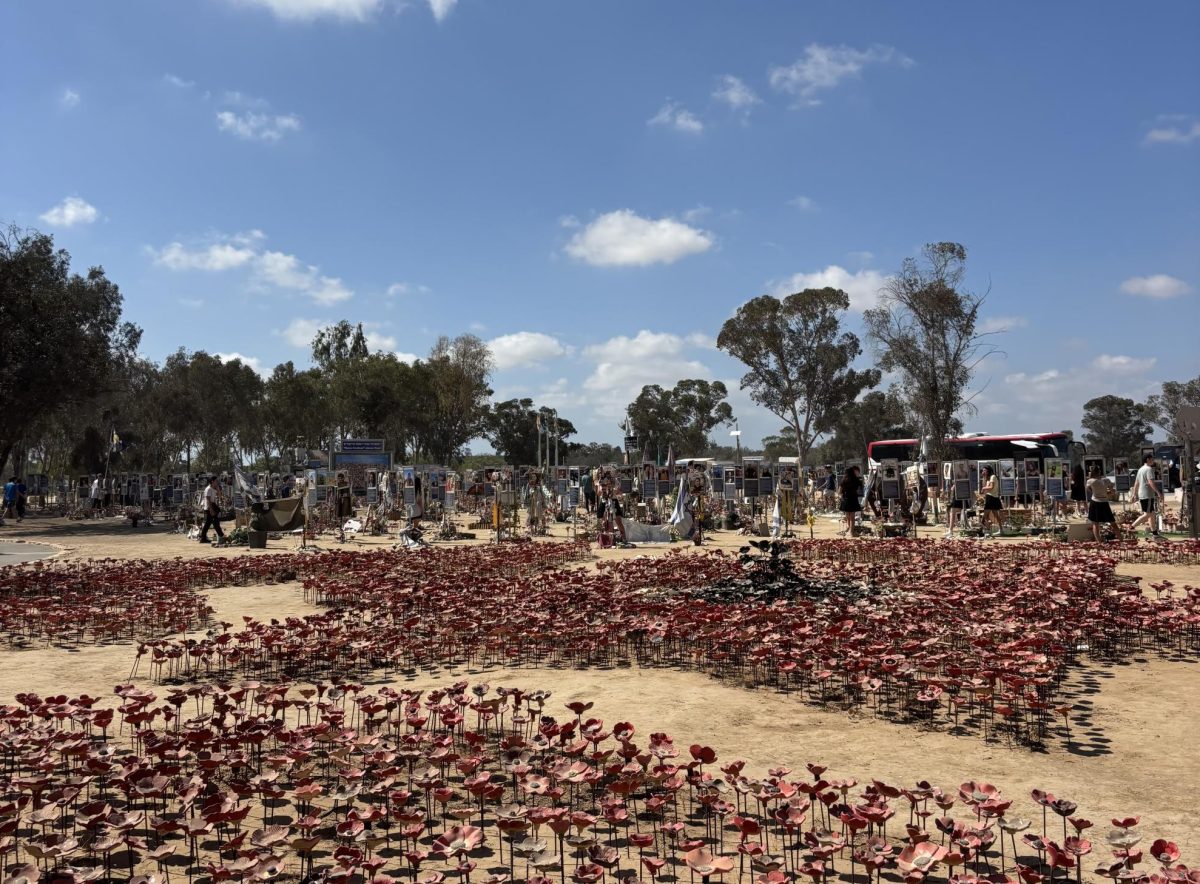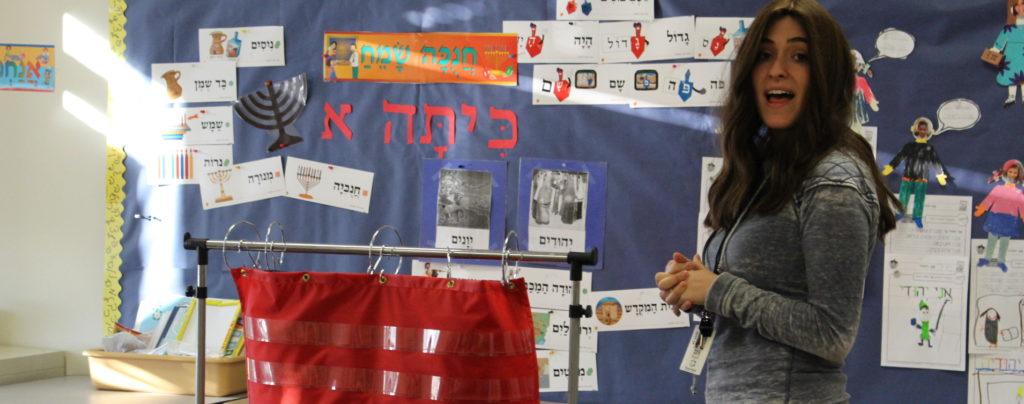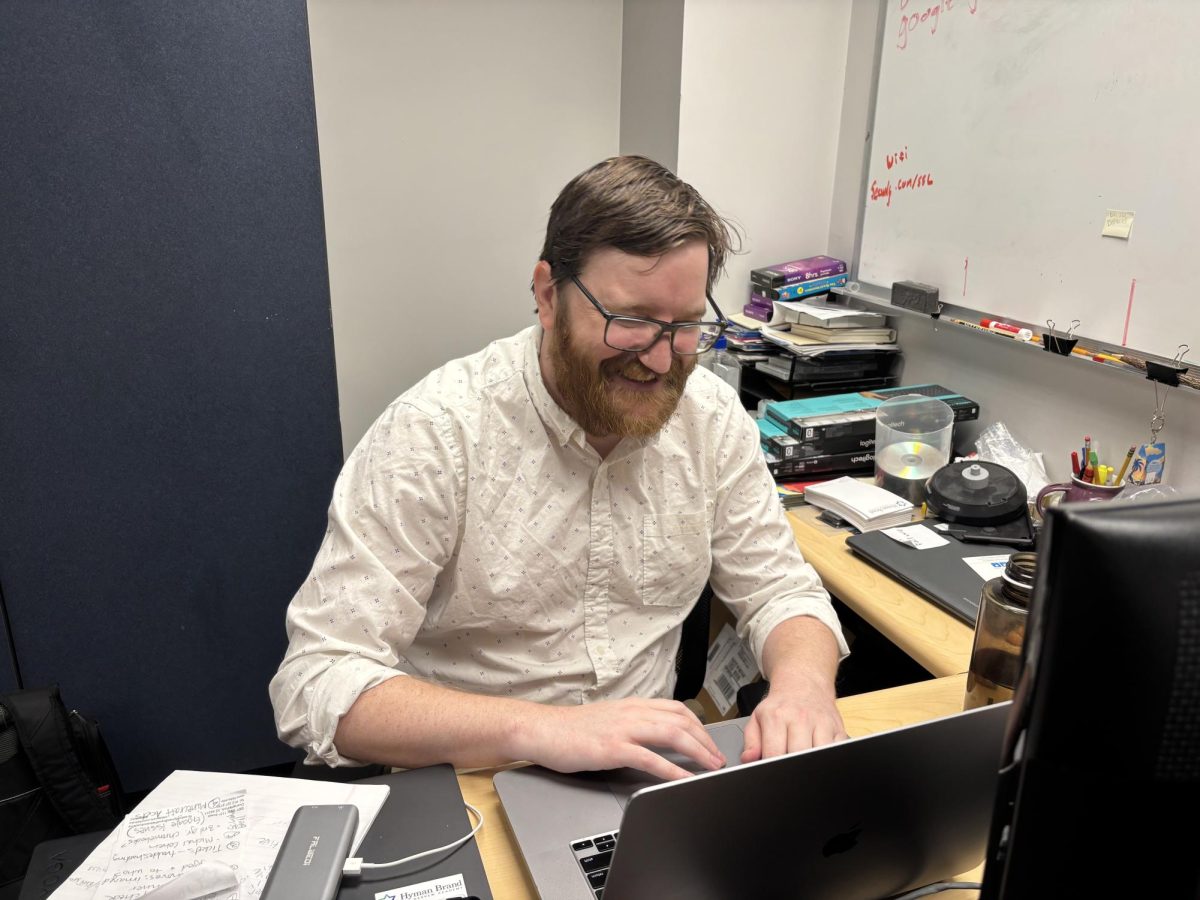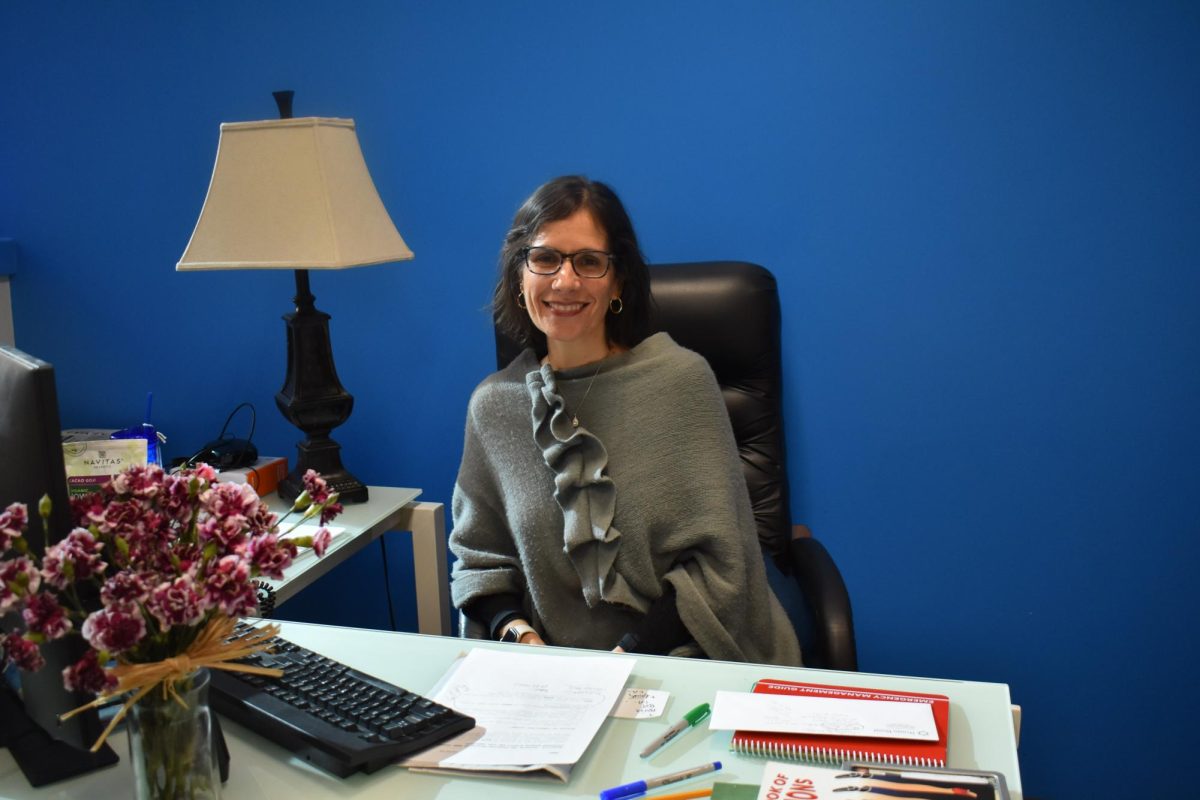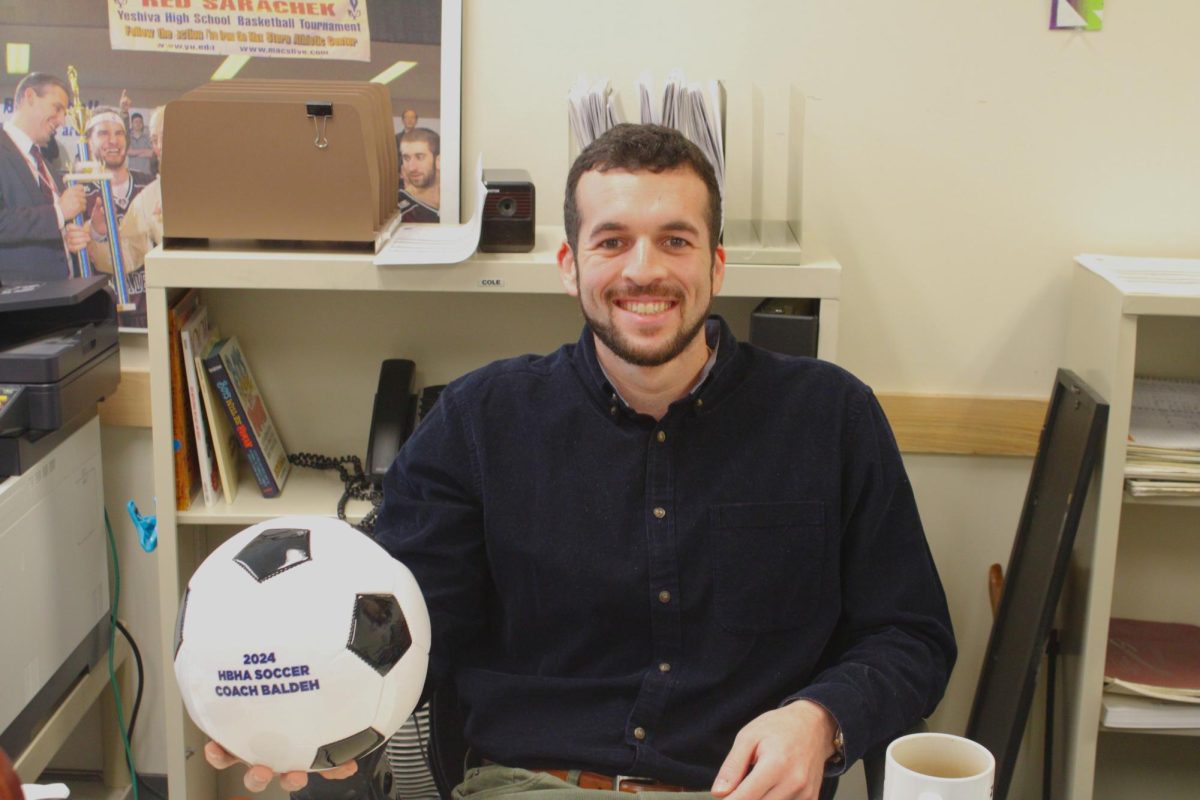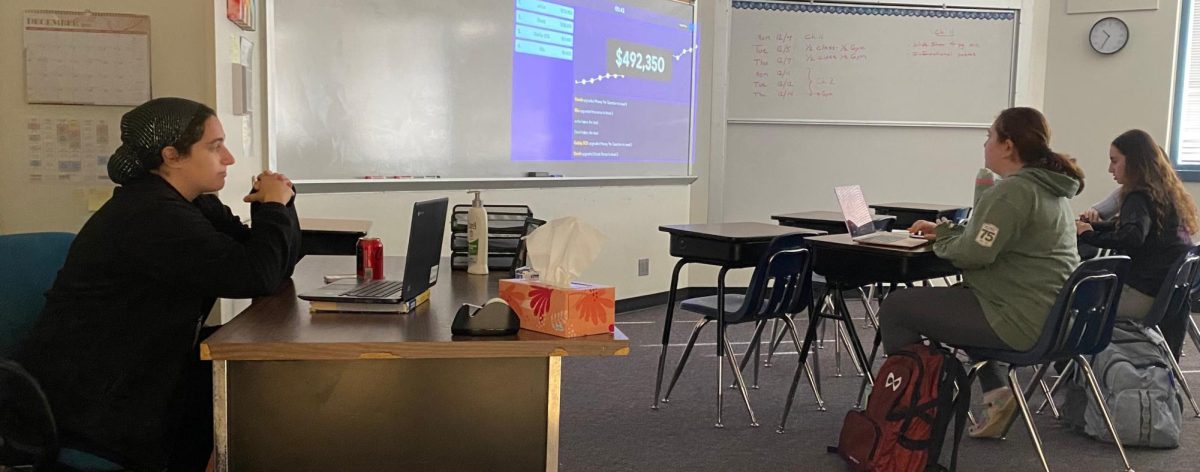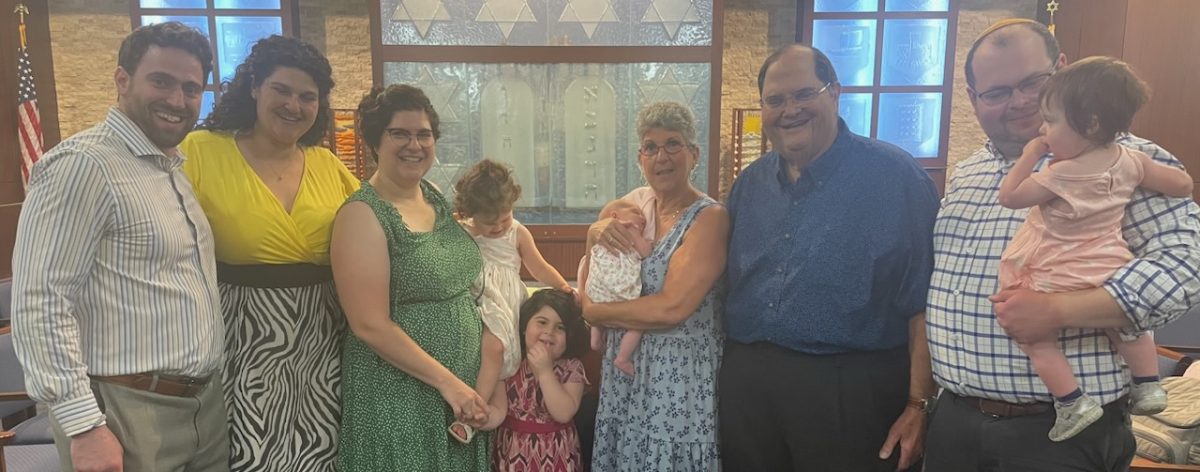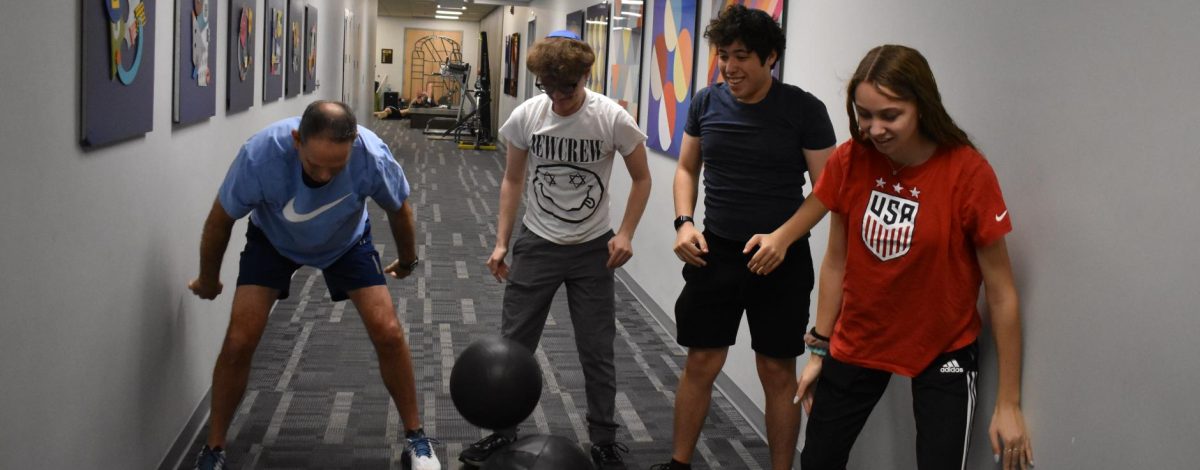Red numbers on the clock turn 8:30. Six eager students rush in, finding their spots. They talk for a few minutes but are quickly silenced. The room is filled with bright posters and colorful letters. Books and worksheets are scattered around the room. Smiling characters are in workbooks and on the board. The kids excitedly wait for their class to start. This is Rikki Katz’s class.
Morah Rikki is a first-year Matmidim teacher at HBHA. She teaches six first grade students Hebrew writing and language skills. She uses TalAm, a Hebrew curriculum teaching Jewish concepts through the narrative of Jewish characters in the classroom.
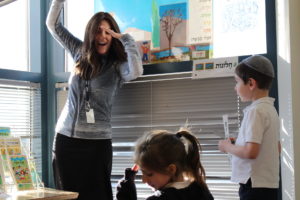
“You can see how exciting it is for the first graders when they turn a page and see that they have the same poster in their room.” Katz says.
She explains that she also likes the Matmidim program for kids who are advanced in Jewish studies. She says that she provides learning tools for each kid’s needs, and she feels like she is a part of the whole school and not just a part of the Matmidim program. Katz points out that Taste of Shabbat, when everyone is together, is a good example of the whole school coming together. She says, “When it’s necessary to be seperate, we do it, but all other times we’re one.”
Katz states that her favorite part of Kansas City is the Jewish community. There are so many different types of Jews in Kansas City, and we are separate in our traditions, but we are still together.
Katz previously taught classes on Judaism to adults, which is much different than at HBHA. She says that one of the main differences was the location. At her previous job, she would meet them at a Starbucks, or at her house, whereas at HBHA, she teaches in a classroom. She says that it is more serious with adults. Katz did not have to discipline them, and her lessons were based around the content.
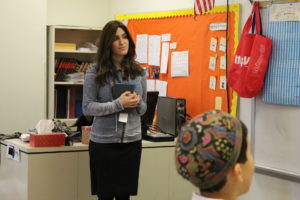
“It’s a little more fun here. We didn’t sing songs when I taught adults.” She also suggests that it is easier to teach a smaller class. When they play games or do activities, it is easier to involve the kids and everyone gets to participate. Another benefit is that the students play more games, or even act out plays, as long as they are speaking Hebrew.
One last observation is that it is important to teach. She explains that when she can support students to learn Hebrew at a young age, it builds a foundation that sets them up to live a Jewish life later.
“If you have Hebrew skills, then even if you go off and don’t continue a Jewish education, you can still pick up a book and learn.” One thing that is also helpful is that it is fun. She mentions that the kids associate their class with fun, and they are excited to learn every day.
Mrs. Katz does not yet know her plans for next year, but hopefully she will stay and continue to teach. Welcome to HBHA!























































